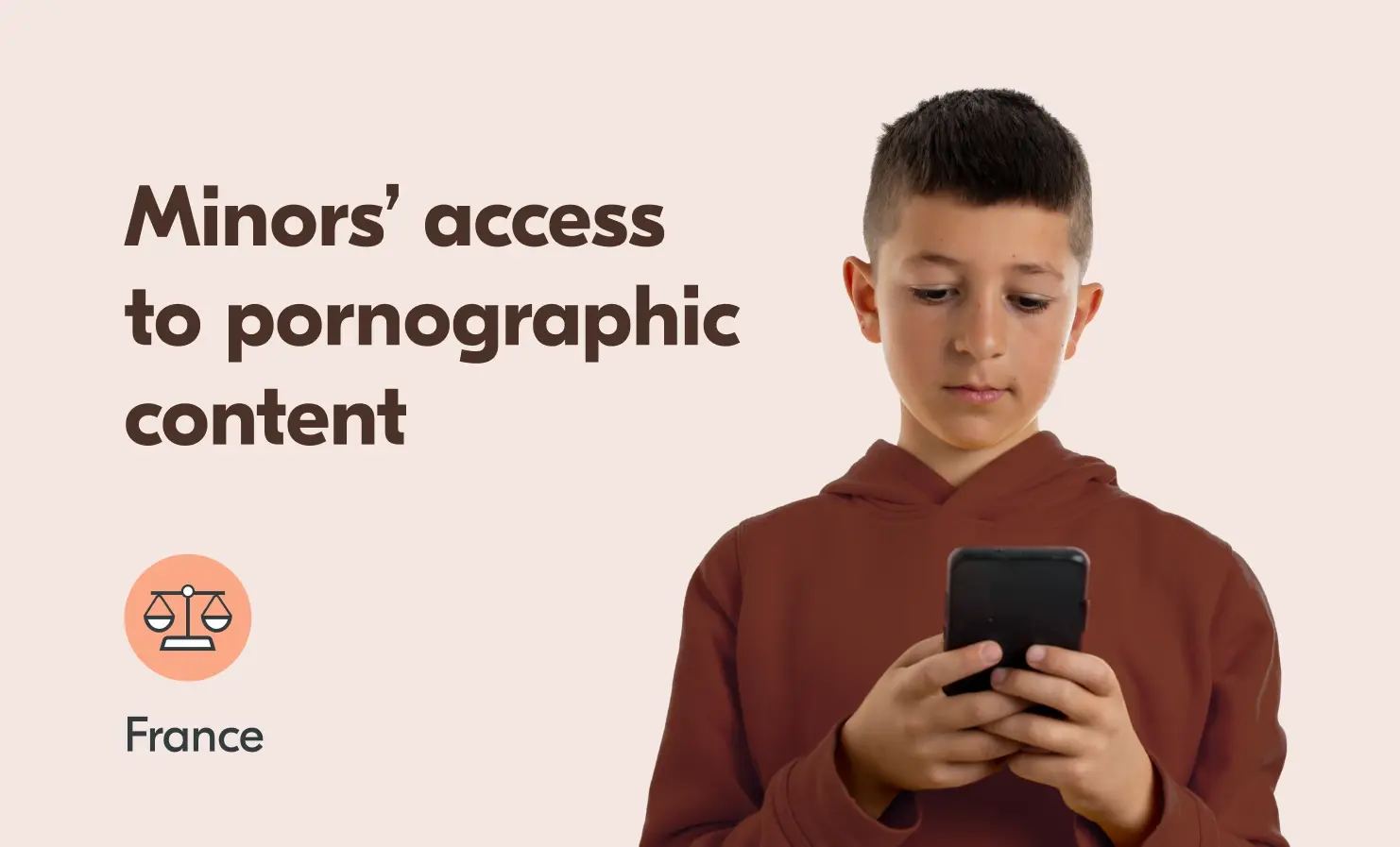
In October 2024, Arcom, the French regulator responsible for online porn, announced that adult operators and platforms with pornographic content need to introduce age checks, ensuring only adults can access the content. These rules are effective from 11th January 2025.
There will be a three month transitional period, where temporary methods like bank card verification can be used as a preliminary age filter, but they must include strong authentication to ensure that the user is the cardholder.
After the transitional period ends on 11 April 2025, adult site operators will need to have taken the following steps:
- Age checks must be effective, privacy-preserving and data minimising.
- Users should be able to choose from at least one ‘double blind’ age check approach. This means the platform should not know who is being age verified, and the age verification provider should not know which platform a verification is for. Our partnerships mean we can support the ‘double blind’ approach.
- The age verification providers must be legally and technically independent of any online platforms hosting or providing porn content. Adults operators should also not have any access to the data used to check a user’s age.
- Age verification systems must not allow the sharing of proof of age with other people, and must be robust against the risks of attacks, such as deepfakes.
- Any facial age estimation must be free from material bias.
There are a number of effective age solutions that platforms can offer their users:
- Reusable digital ID app, that lets users anonymously share an ‘over 18’ proof of age credential.
- Identity document, which must be checked for its authenticity and to make sure it belongs to the rightful owner.
- Facial age estimation, used with a suitable age threshold to ensure no underage access.
- Age tokens, that allow users to share their age across different websites without completing a new age check every time.
In recent years, there have been legal challenges which have thwarted the French Government’s desire to introduce age checks to protect minors. However, the law transposing the Digital Services Act into French law also gave Arcom the power to block sites after two weeks’ notice, without requiring a court ruling. It now has the power to mandate Internet Service Providers to block non-compliant sites nationwide, across a market of 70 million consumers.
On 17 October 2024, French courts ordered the blocking of five major adult sites for not having sufficient age verification measures in place. With the publication of the referential and the recent court ruling, France has become the first prominent country to actively enforce age assurance measures for viewers of adult content.
How Yoti’s age solutions work
We provide a number of age assurance solutions to help adult platforms check the age of users online in a privacy-preserving and effective way. We’ll explore some of our most popular solutions below:
Facial age estimation: privacy-preserving and inclusive
We use AI to estimate the user’s age from a selfie. Our technology is independently tested and the accuracy is continuously improving; as of September 2024, the True Positive Rate (a result that correctly estimates the person as 18+), for 13 to 17 year olds correctly estimated as under 21 is 99.3%.
Each estimation takes around one second and no identity documents are required, making this a quick, easy and private solution. As soon as a user’s age is estimated, their selfie image is deleted so there is no honeypot of data that can be hacked.
Facial age estimation can be paired with our proprietary liveness detection, which confirms it’s a real person completing the age check (stopping people from holding up a photo of someone else).
Age tokens: remove friction for returning users
Users can verify their age once and gain continued access to a number of age-restricted platforms. This is powered by reusable age tokens, keeping users anonymous and verified.
Age tokens work in a few simple steps:
- The user proves their age (they are presented with a range of options for how they prove their age).
- An anonymous age token (18+) is added to their device.
- The user can then visit other websites that accept the age tokens. Arcom has already stated some criteria for age tokens, including them expiring within one hour, when the user closes their browser, or when their device goes into sleep mode.
If a user visits a website which doesn’t accept age tokens, they would be asked to prove their age again.
Our privacy-preserving age solutions can help you to meet Arcom’s requirements. Get in touch for more information.
Please note this blog has been prepared for informational purposes only. You should always seek independent legal advice.




